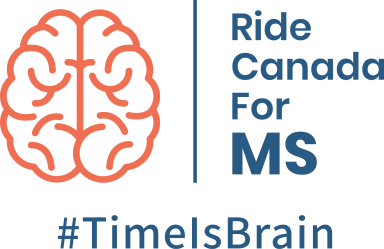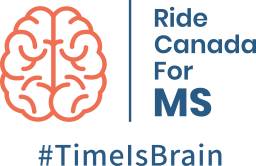FAQ : Brain Health in Multiple Sclerosis (MS)
1. What is brain health and why is it important for people with MS?
Brain health is a multifaceted concept encompassing a person's cognitive, sensory, social-emotional, behavioral, and motor abilities, allowing them to reach their full potential. For people with MS (plwMS), brain health is crucial because MS directly attacks the central nervous system, leading to brain lesions, atrophy, and functional decline.
2. How does MS affect brain health?
MS causes inflammation and damage to the myelin sheath protecting nerve fibers in the brain and spinal cord. This damage leads to lesions, which disrupt nerve signals and cause various symptoms like fatigue, mobility issues, cognitive impairment, and emotional changes. Over time, MS can also cause brain atrophy (shrinkage), further impacting brain health and function.
3. What is the concept of 'reserve' in relation to brain health and MS?
Reserve refers to the brain's ability to withstand damage and maintain function. There are two types of reserve:
- Brain reserve: The physical amount of brain tissue. A larger brain volume may offer more protection against damage.
- Cognitive reserve: The brain's ability to adapt and compensate for damage using alternative pathways and networks. This is influenced by factors like education, lifestyle, and mental stimulation.
People with higher reserve may experience fewer or less severe symptoms despite having similar levels of brain damage.
4. How can I promote brain health if I have MS?
Promoting brain health involves a holistic approach:
Lifestyle modifications:
- Avoid smoking: Smoking is linked to faster brain atrophy, increased disability progression, and cognitive decline in plwMS.
- Limit alcohol intake: Excessive alcohol consumption can worsen MS symptoms and impact brain health.
- Maintain a healthy weight: Obesity can exacerbate MS symptoms and contribute to other health problems.
- Engage in regular physical activity: Exercise promotes brain health by improving blood flow, stimulating nerve growth, and enhancing cognitive function.
- Eat a healthy diet: A balanced diet rich in fruits, vegetables, and whole grains can support overall health and brain function.
- Manage stress: Chronic stress can negatively impact brain health. Practice relaxation techniques and seek support when needed.
- Prioritize sleep: Adequate sleep is essential for brain health and repair.
- Stay mentally active: Engage in activities that challenge your brain, such as puzzles, learning new skills, or social interactions.
Medical Management:
- Disease-modifying therapies (DMTs): DMTs can help slow disease progression and reduce brain damage. Early intervention with DMTs is crucial for maximizing brain health.
- Symptom management: Medications and therapies are available to manage MS symptoms and improve quality of life.
- Regular monitoring: Regular checkups and MRI scans help monitor disease activity and inform treatment adjustments.
5. What are the latest recommendations for treatment and monitoring of MS?
The latest consensus emphasizes:
- Early intervention: Start DMTs as soon as possible after diagnosis to minimize brain damage.
- Proactive monitoring: Regular clinical assessments, including MRI scans, to track disease activity.
- Treat-to-target approach: Aim for "no evidence of disease activity" (NEDA), which means no relapses, disability progression, or new MRI lesions.
- Shared decision-making: Work with your healthcare team to determine the most appropriate treatment and management plan based on individual needs and preferences.
6. What are the economic implications of MS and its impact on brain health?
MS has significant economic consequences, including direct healthcare costs, lost productivity due to disability and unemployment, and the burden of informal care on families. Early diagnosis and effective treatment can potentially reduce the long-term economic burden of MS by slowing disease progression and preserving brain health.
7. What are the challenges in accessing appropriate care for MS and its impact on brain health?
Despite advancements in MS care, challenges remain in:
- Timely diagnosis and referral: Delays in diagnosis and referral to neurologists can lead to missed opportunities for early intervention.
- Access to DMTs: Funding restrictions and varying treatment guidelines can limit access to appropriate DMTs.
- Comprehensive care: Access to multidisciplinary care, including specialist nurses, rehabilitation services, and mental health support, is not always readily available.
Advocacy for improved healthcare systems and policies is crucial to ensure timely access to quality care for plwMS, maximizing brain health and quality of life.
8. What are the future directions for research and advocacy in brain health and MS?
Future efforts should focus on:
- Developing more sensitive and specific biomarkers for MS and brain health, enabling earlier diagnosis and personalized treatment.
- Investigating neuroprotective therapies that can directly target and repair nerve damage.
- Improving access to innovative therapies and comprehensive care for all plwMS.
- Raising awareness and understanding of brain health and MS among the public and policymakers.
- Promoting research funding and collaboration to accelerate progress in MS treatment and care.
By prioritising brain health and advocating for improved care, we can empower plwMS to live full and meaningful lives.
We need your consent to load the translations
We use a third-party service to translate the website content that may collect data about your activity. Please review the details in the privacy policy and accept the service to view the translations.

